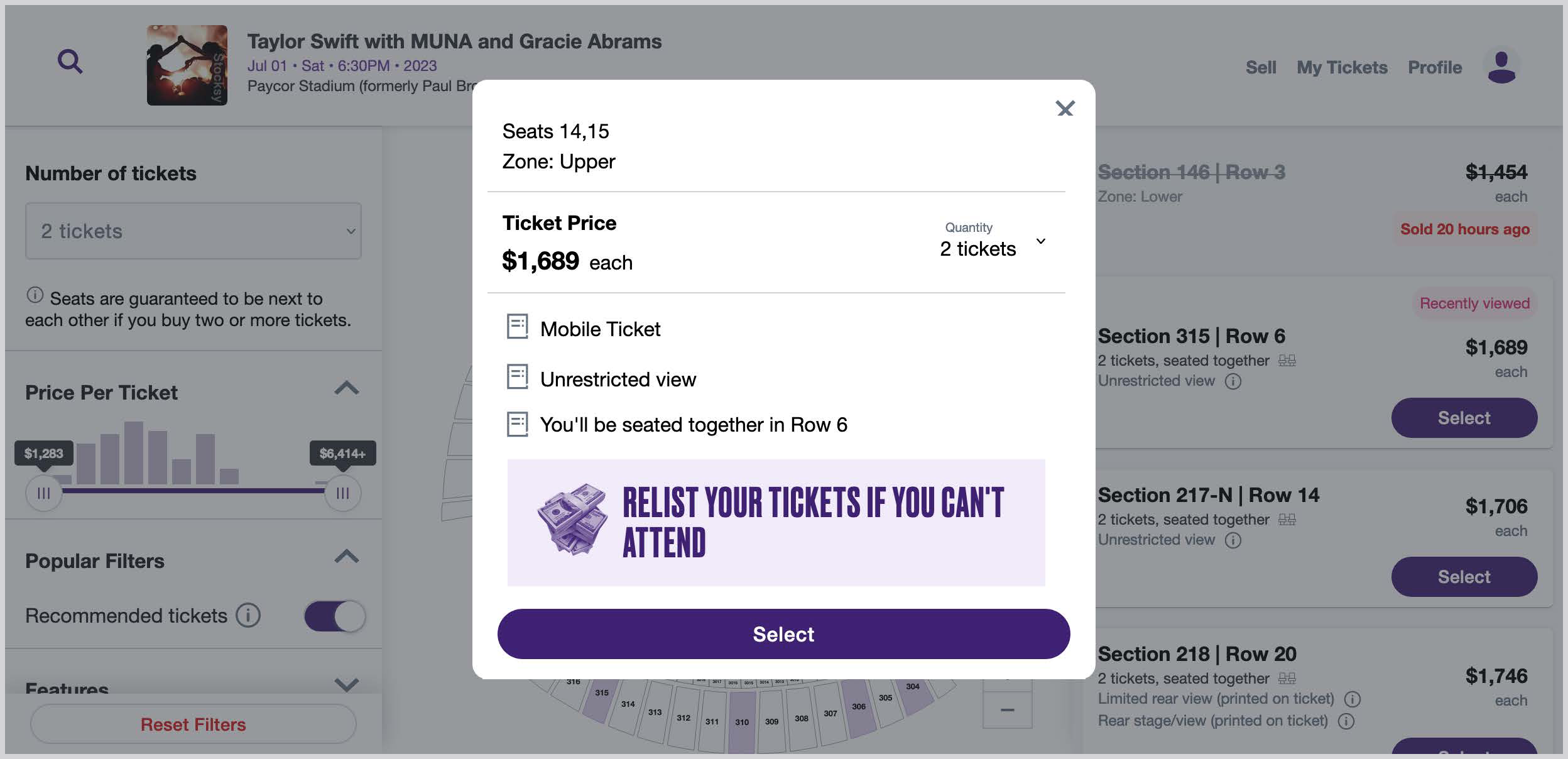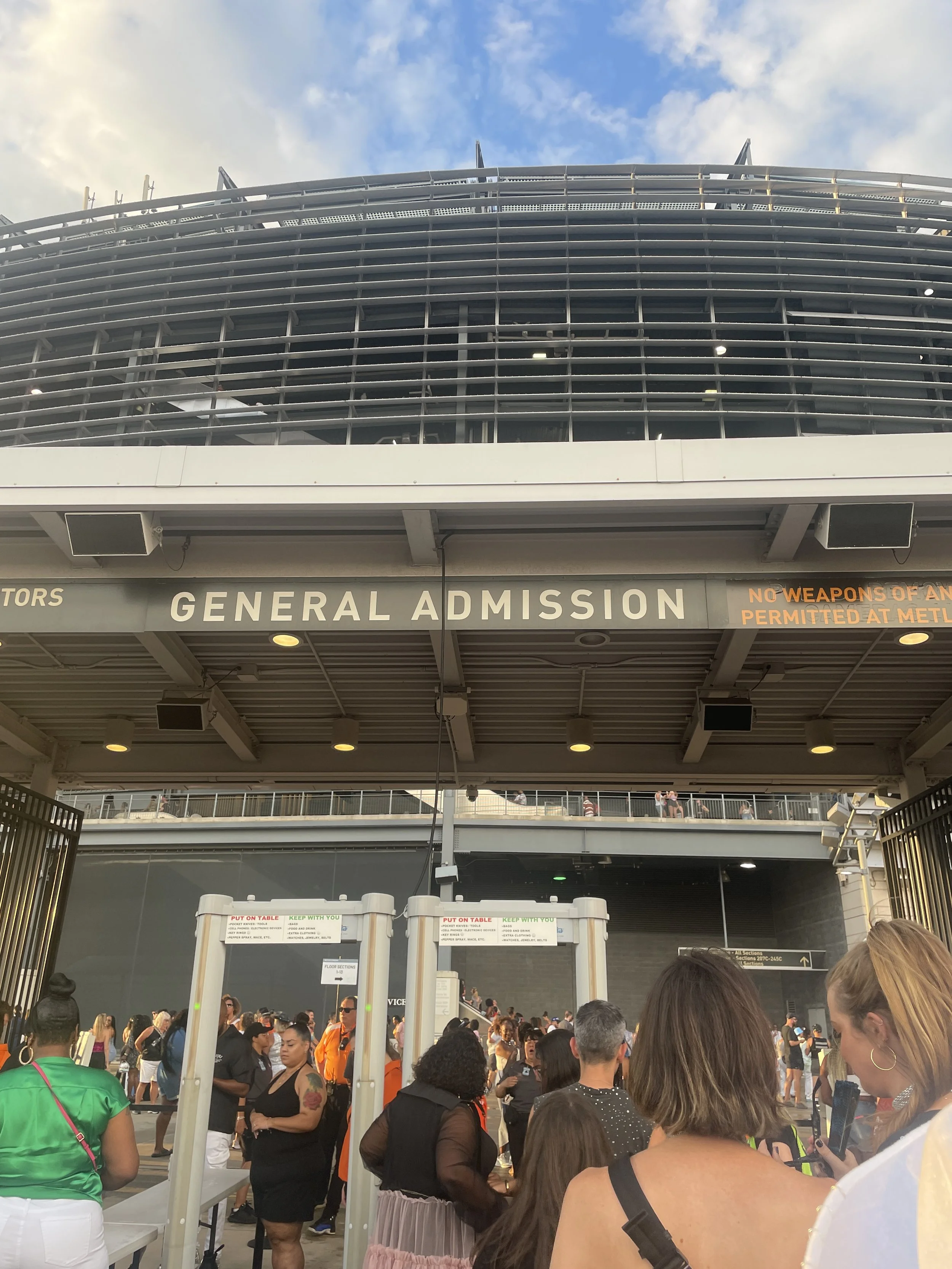THE CHALLENGES OF ONLINE TICKETING By:Jasmine Thelemaque
The increase in ticket prices has made it difficult for fans to purchase concert tickets to see their favorite artists on tour. Lining up at the box office is a thing of the past, with the innovative technology that makes it convenient for the consumer to secure a ticket with a click of a computer mouse. However, fluctuating prices, scalpers, and resellers are unavoidable, causing a much slower process at checkout, only leading to a frustrating and stressful experience for the consumer, many concertgoers say.
Primary ticketing sites like Ticketmaster offer a presale option, which gives selected fans a code for early access to purchase tickets before the general public. However, presale codes do not guarantee tickets. About 2,000-plus people wait online to secure their spot in their desired seating location. Additionally, fans will use multiple devices to increase their chances of scoring the best seats, and even though presale is often seamless, it can also be a nightmare when a ticketing site crashes.
Timing is imperative when it comes to purchasing tickets online. Consumers should have their account and payment information set up and ready to go in the system. Ticketmaster has a limited time window for the checkout process. Consumers should consider that by knowing their preference in seating location beforehand. To prevent tickets from being released to them.
Additionally, most concertgoers aren’t lucky enough to receive a presale code, and the only options left are general admission and resale tickets, which are often double the face value price. Brian Diaz, a student at American Institute, was one of the unfortunate ones when he tried to purchase Beyoncé tickets from a reseller on Ticketmaster. “Somebody was reselling it, and he was reselling it for like $4,500, and I said, ‘Oh my god, what world do we live in?’” Diaz said. Resale prices are hiked up, sometimes double or triple the face value price based on seating location.
SeatGeek and Stubhub are secondary marketplaces that sell tickets at a more affordable price, but studies have shown tickets purchased from these markets aren’t often legitimate. The Better Business Bureau has over 140 reports on its BBB Scam Tracker related to sporting events, concerts, and theaters.
“One of the arguments for at least using platforms is it’s slightly less risky than purchasing tickets outside the arena,” said Michael Clements, a director for final markets and community investment at the Government Accountability Office. “You don’t know the prominence of that ticket, but it certainly can be a challenge, even for online tickets.”
The people behind these potentially shady deals are known as scalpers, some of whom buy a ton of tickets from a licensed company and for an oversized profit as soon as they go on sale. According to Jayde Brooks, Live Nation touring manager, scalpers have an advantage over consumers.
“Scalpers usually have the money up front to purchase tickets, especially since artists don’t always give a lot of time to purchase tickets prior, too,” Brooks said.
Image Source: TruthInadversting.org
Additionally, higher-demand artists like Beyoncé will place tickets in batches reserved for selected individuals to get their hands on before the general public. “She did something clever where she had like people in groups or reservations, but honestly, I don’t think there’s any other way around it,” Brooks said. Generally, this leads to consumers falling into the trap of spending a lot more money on tickets than they originally planned out of fear of not securing the best seats once the sale has started.
Photo By: Jasmine Thelemaque
Aside from online scalpers, street scalping was popular in the 19th and 20th centuries. Scalpers were known as “walking men” who would stand at the doors of concerts and prey on vulnerable fans without tickets to a show.
The Office of Justice Programs reports, “Thirty-one states have some form of ticket scalping regulation, and many city ordinances regulate ticket scalping on public property.” Although street scalping is often regulated, it is illegal in seven states, including Alabama, Georgia, Illinois, Massachusetts, New Jersey, New York and Pennsylvania. Anyone planning to sell or resale tickets has to show proof of license.
According to Dave Brooks, a senior correspondent for touring and live entertainment at Billboard, “Ticket scalping used to be a pretty shady kind of underground business, and now it’s a professional business,” Brooks said. “There are billions of dollars a year run by corporations, hedge funds, all kinds [in the] financial world, and it’s just a much more sophisticated business through all respects — operations, finance to technology.”
No doubt, the difficulty of securing seats can be anxiety-inducing for fans, as junk fees, scalpers and resellers play a factor in the overall experience. Scoring tickets can feel competitive when dealing with a popular event, and there is also a chance for a limited supply of tickets as the date of the event approaches. Technology has made it easier to secure tickets, but the process continues to be a challenge for many fans eager to take in live shows.

